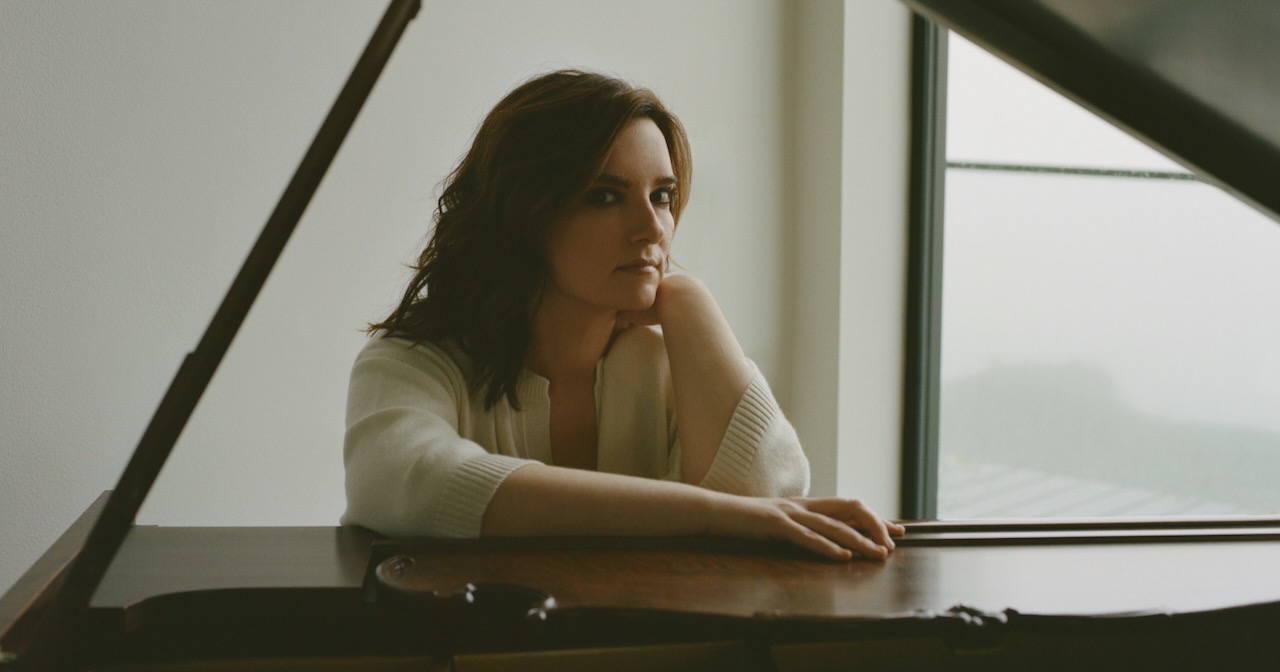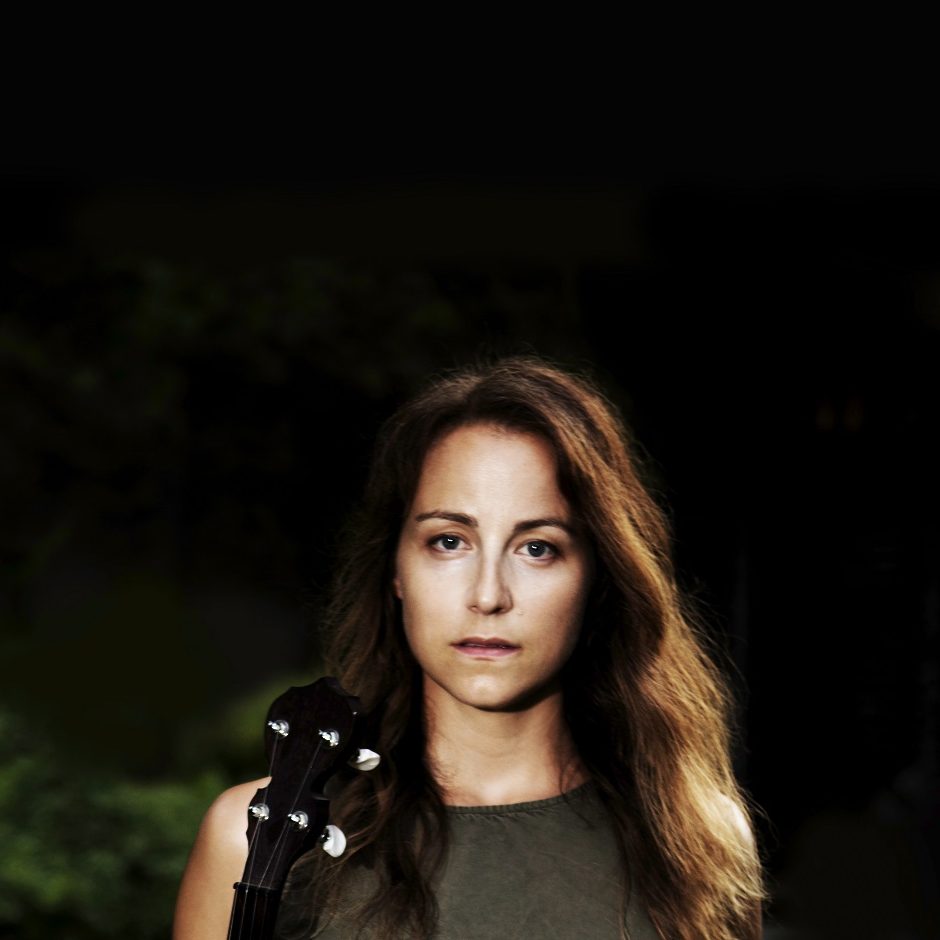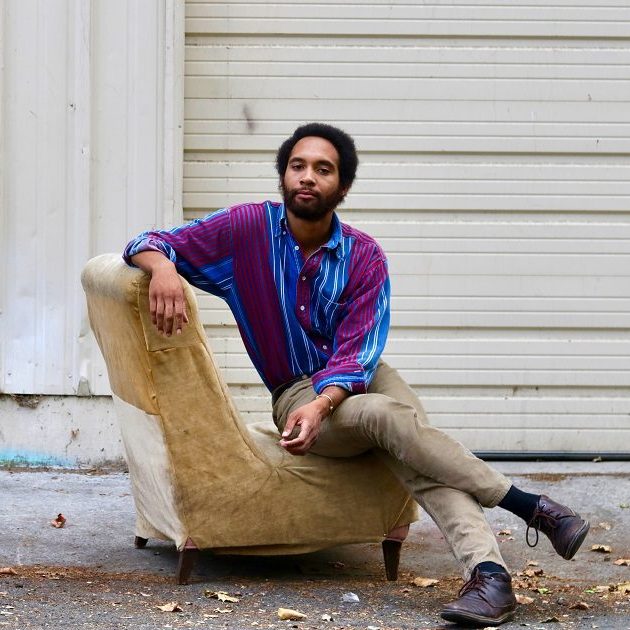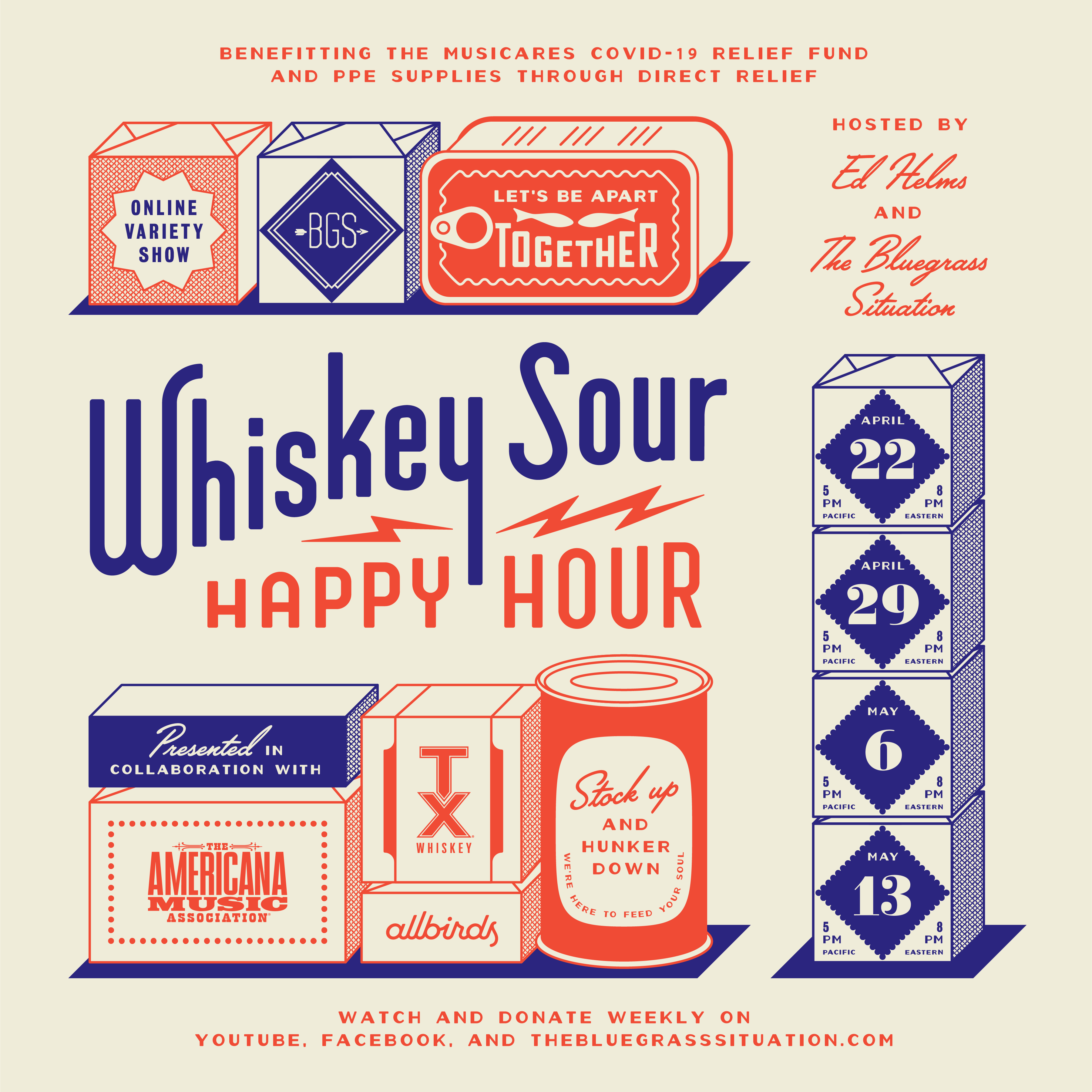Despite her well-earned reputation as one of Nashville’s strongest songwriters and nuanced singers, Brandy Clark had gotten used to not hearing her name called at Grammy Awards ceremonies. Two years ago, her friend Brandi Carlile decided to do something about that. Carlile produced Clark’s fourth studio album, Brandy Clark, which earned five of the six nominations she got this year, upping her tally to 17 — one of which turned into her first win. Clark was honored for Best Americana Performance for “Dear Insecurity,” a duet with Carlile. After her win, Clark told a backstage interviewer, “Brandi is the reason why I made this record and why this song is what it is.”
But as Clark explained in an earlier BGS interview, the catalyst for that collaboration — her most personal, affecting work yet — was one of those Grammys she didn’t win.
So how did Brandi’s involvement come about?
Brandy Clark: The label wanted me to record two more songs for a deluxe version of Your Life is a Record. I had made that record with Jay Joyce, and he couldn’t do it. Tracy Gershon, a mutual friend of Brandi and I, said, “What if Brandi produced?” And Brandi was willing to do it. It was a really good experience, mostly because Brandi really follows her gut instinct, which is so amazing. I tend to overthink. And then “Same Devil,” which was part of that, ended up nominated at the next Grammys. We didn’t win, and she leaned over to me and said I looked really devastated. I didn’t remember feeling particularly devastated, but she said I just looked really sad, so she said, “Hey, buddy, we’ll get one. I’d love to do a whole record with you.” I was like, “Really?” And she said, “Yeah, I’ve thought about it. I think these things through when I get involved in a project; I think about the artwork, I think about everything. I’d see it as your return to the Northwest, because I’m from the Northwest.”
It was such a different experience for me, because Brandi’s an artist. I think producers lead with whatever their original instrument is; if they were a guitar player, they lead with that. If they were a songwriter, they lead with that. I’ve never worked with a producer that could sing to me what they heard, and also keep me from over-singing. And she wanted as many live vocals as possible. That was different for me. And she really challenged me to get to the heart of who I am as an artist. No producer’s ever asked me to make lyric changes; she said, “I just want to believe that you believe everything you’re saying.”
What’s an example of a lyric she asked you to change?
“Buried;” the second verse used to start out, “I’ll read ‘Lonesome Dove,’ I’ll start doing yoga,” and she said, “I don’t like that yoga line.” I was thinking, “I don’t care if you like it or not.” That was my first [reaction]. I said, “Why not?” She’s like, “Well, I just don’t believe that you do yoga.” I said, “I don’t.” She’s like, “Then it shouldn’t be in the song.” And she was right.
You do heartbreak songs so extraordinarily well. Even the ones that aren’t sometimes feel like heartbreak songs, because they’re so full of emotion. “Dear Insecurity” — to hear that coming from the perspective of two women who are both stars now, and yet it’s so believable — it’s not like two women just singing “Oh, yeah, we’re insecure,” you really believe it. That’s what’s so striking about all of your songwriting, but to be able to do that, and do it well, and to know that it doesn’t matter how big you get, you still experience that …
Oh, I have massive insecurities. I think everybody does. That’s why I think that song hits; to be human is to be insecure. And the more willing you are to admit those insecurities, the less they rule you. That song came from— I had gotten my feelings hurt. A really great friend of mine says insecurity is the ugliest human emotion; it’s what makes people do mean things. So I was trying to remember that on the way to my writing appointment that morning, because I wanted to get into a good headspace to write with someone I had never written with. When I was sitting in the car, I started to think about my own insecurities, and the things that they have messed up along the way for me. I thought, “Wouldn’t that be something, to write a letter to insecurity?”
Why did you and Brandi choose to duet on that song?
Well, going in, I never heard that song as a duet. The first day we were in the studio, she said, “What do you think about ‘Dear Insecurity’ being a duet?” I loved the idea; I heard it as a duet with a guy, because men have insecurities just like women do. She really wanted Lucinda Williams. Because we hadn’t secured anybody yet, she said, “I’ll sing the scratch [vocal], and then we’ll see about getting Lucinda in here.” So she started to sing, and we really got lost in it.
Brandi had also been pretty adamant that she didn’t want to be a feature on this record, because of producing it, and because we had done that other feature, [“Same Devil”]. She just didn’t want it to look like she was trying to get featured. But when it was going down, I could just feel this magic happening. When I listened to the board mix, I thought, “Oh, God, what am I going to do? I don’t want to hear anybody but her on this now.” I loved the way that our voices battled each other and melded together. So I said the next day, “Brandi, I really want it to be you.” And she was like, “Oh, that’s all you had to say.” It was perfect because we have similar insecurities. We’re around the same age, both gay, like, there’s insecurities in that. We’re very similar, and very different. And it just worked.
In what other ways did she influence or impact this album?
There were a couple of things that I’ll take with me forever. When she was asking me to make lyric changes, that really bothered me. It felt disrespectful to the co-writers to do that on the fly, and I told her that. I said, “These songs, none of them were just slapped together, because I don’t write that way.” No offense to anyone who does, I just have to put a lot of thought into songs for ’em to be good. And it took other people to write these songs that I respect and that put their heart and soul into this, too. And I like to be in service to the song. And she said, “Well, I understand that. I think this time, you need to be in service to the artist.” It put me in a different space as an artist than I’ve ever been in. I always come at things as a songwriter first. This record, I came at it as an artist first.
The other thing – and I’m so glad that I asked her this question, and that she answered it the way she did, because it makes me think differently; I’ve never worked with a producer on a record that I was a co-writer with. So they’re always, to me, the last writer on the songs. The positive is that they’re making choices based on what they feel when they hear them the first time, like a listener. …I always give a producer probably 18 to 24 songs, then I’m just too close to pick the 10 or 12. So she picked the songs that she thought should be on this record. When she gave me her list of what she really wanted us to dive into, I said, “Why did you choose those 10?” And she said, “Well, they were all great songs; but I chose the songs that I felt like you wrote in your bedroom.” That was such a great thing… it reminded me that when all of us picked up a guitar or pad of paper the first time, it wasn’t to impress anybody. It was to just get some emotion out that we could only get out through song.
There’s another song on here, “She Smoked in the House,” that I wrote about my grandma that I never thought would be on any record. I thought I was just writing it for me. People have responded so strongly to that song, it just helps me know I need to double down on me and what I’m feeling, instead of what I think people want to hear. That sounds really simple, but it’s easy to forget that if we’re feeling something, other people are gonna feel it. And if we’re not, nobody’s gonna feel it.
You once told me your mission was to write a classic like “Crazy.” While listening to this album and Shucked [the Broadway musical for which she and Shane McAnally co-wrote the music and lyrics], it occurred to me that you have. A song like “Friends,” that’s gonna be sung at thousands of weddings and graduations, and “Take Mine” and “Up Above the Clouds” and these other tracks… I kept thinking of the great Randy Newman tearjerker songs in Pixar films.
I’ve always thought “Up Above the Clouds” should be in one of those.
Totally! Are you working on that?
Yes. It makes me feel amazing that you feel like I have written a classic song like that. I’m going to hang on to that today, and then I’m going to let it go. Because what keeps me hungry as a songwriter is to think I haven’t.
You mentioned you might do something else with Brandi. Are you already talking about that?
No, but we clearly work well together and people like what we do. She’s a little bit like Shane for me; I feel like the sum of our parts is greater than two people.
I love that you’re all part of this connected group of people, especially women. I remember Allison Russell crediting Brandi with elevating her family out of poverty, and to be able to do that for so many people …
That’s a testament to Brandi. She’s on top of the world and she’s choosing to elevate other people; she said to me when she approached me about this, “You deserve to be in the same spot as me on festival posters. That’s what I want.” A lot of people have a scarcity mindset. She has an abundant mindset and wants to raise up the music of other people that inspires her. That inspires me to do the same.
My trajectory is on a really great path right now. And then I look to someone like her and think, “OK, where do I pay it forward? Where do I lift someone else up?” Because it’s really easy when you’re just grinding and trying to get your own star to rise, to not look around and think, “Oh, how can I help someone else?” But she really inspires me to do that.
Photo Credit: Victoria Stevens







